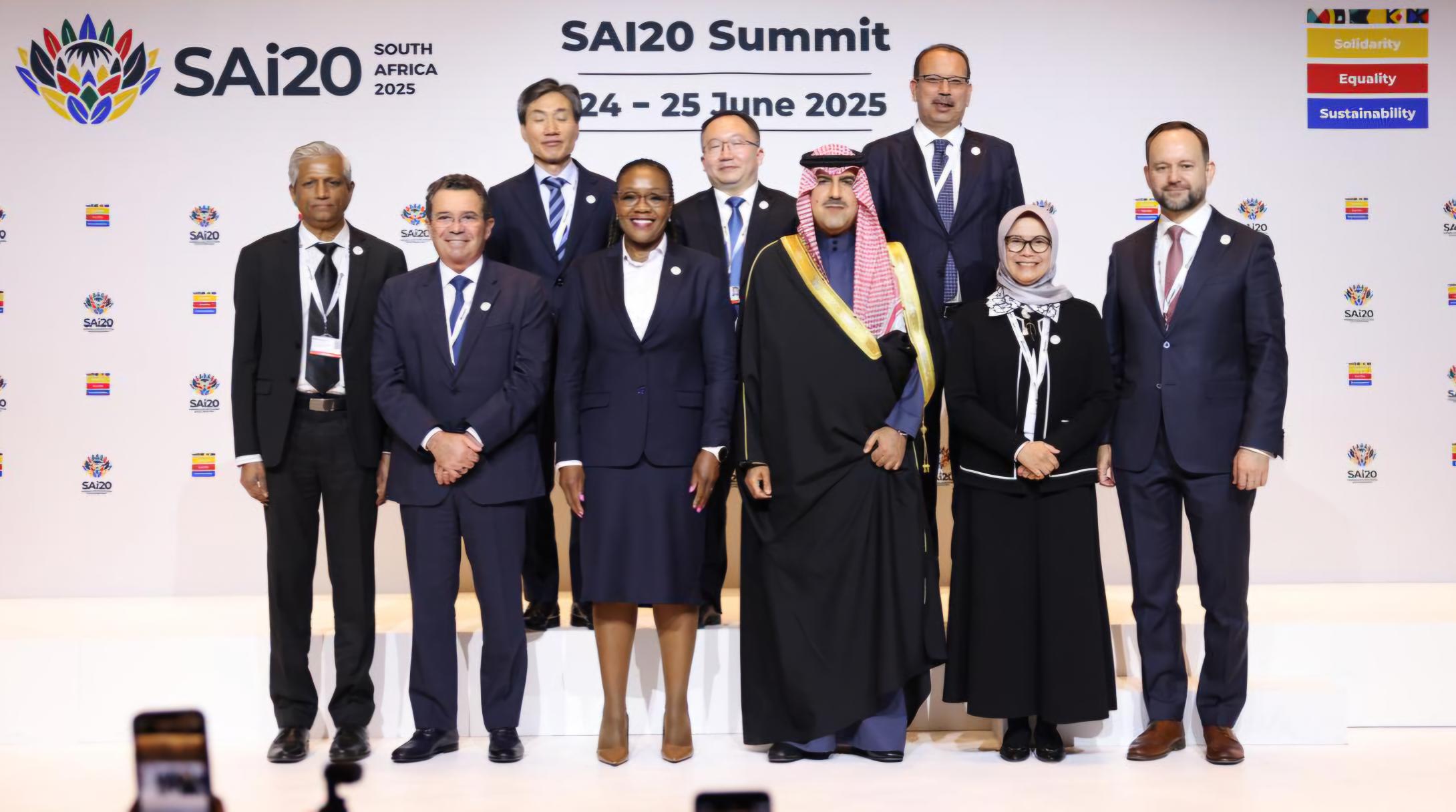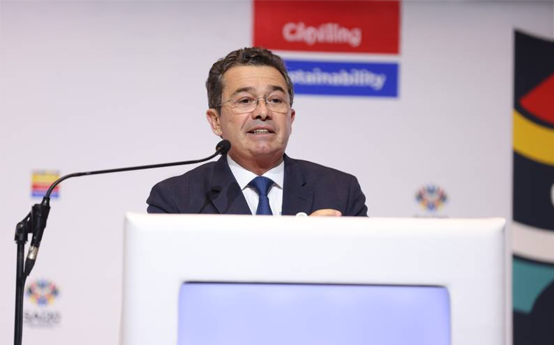TCU Highlights the Role of Supreme Audit Institutions in Tackling Global Inequality
At the SAI20 Summit, President Vital do Rêgo highlights the importance of joint action by Supreme Audit Institutions to ensure investments in infrastructure and education.
By Secom / Serint

The Brazilian Federal Court of Accounts (TCU) took part in the SAI20 Summit held from June 23 to 26 in Johannesburg, South Africa. The event brought together Supreme Audit Institutions (SAIs) from G20 countries to discuss strategic issues related to infrastructure, education, and global governance. On the occasion, the engagement group approved the official SAI20 Communiqué, which will be presented to G20 leaders.
TCU President, Minister Vital do Rêgo, represented Brazil at the meeting. After chairing the SAI20 the previous year, TCU transferred the leadership in November to SAI South Africa. During the opening session, Minister Vital thanked the host, Auditor General Tsakani Maluleke, for organizing the event and reaffirmed SAI20's commitment to strengthening public management and multilateral dialogue.

He emphasized the importance of the group as a platform for exchanging ideas among SAIs from G20 nations and invited countries. He also referenced the collaborative work throughout the year, including technical meetings and knowledge sharing, which culminated in the 2025 Communiqué. “This joint effort demonstrates the value of SAI20 as a space for mutual trust and institutional cooperation,” he noted.
According to the Minister, the priority themes under South Africa’s presidency—infrastructure and education—are key to building more just and sustainable societies. He also recalled the global challenges posed by hunger and food insecurity, exacerbated by armed conflicts, climate change, epidemics, and disruptions in supply chains.
“In this context, Supreme Audit Institutions become even more relevant by upholding values that unite us as a global society: integrity, public accountability, good governance, and transparency. These principles are essential for addressing today’s challenges, fostering peace, ensuring food security, and building a fairer and more sustainable future for all,” Vital stated.
The Future of SAI20
During the session on the future of the SAI20 held on June 25, the President of the Court advocated for closer synergies between SAI20 and the International Organization of Supreme Audit Institutions (INTOSAI). He emphasized that SAI20 should be seen as an opportunity to amplify the “Global Voice” of SAIs, promote technical cooperation, and build trust among audit institutions.
“I firmly believe there is room for institutional growth of the SAI20, in a manner that is coherent and complementary to INTOSAI, ensuring it remains a modern, forward-looking platform for public auditing —aligned with the demands of a world that no longer tolerates waste, setbacks, or inequality,” he said.
He cited how SAI20’s agenda aligns with INTOSAI initiatives, such as the topic of energy transition, which inspired the INTOSAI Working Group on Extractive Industries (WGEI) to develop a Practical Audit Guide for SAIs. Another example was the debate on eradicating hunger and poverty, which motivated TCU to explore the development of a Multidimensional Poverty Index—an initiative that may be shared with the global SAI community.
Minister Vital affirmed that this integration strengthens the role of SAIs in producing reliable data and guiding more sustainable and inclusive public policies. “There is a unique contribution that SAIs can make: evidence-based diagnostics, trustworthy information, and actionable proposals to support more equitable and effective public policies. By offering this input to the G20—the world’s leading economies—the SAI20 enhances the role of SAIs as agents of institutional transformation,” he concluded.
Bilateral Meetings
During the SAI20 Summit, TCU also held bilateral meetings with the SAIs Morocco, Russia, Kenya, Egypt, and a representative of the African Organization of English-speaking SAIs (AFROSAI-E).
The Brazilian delegation included Juliana Pontes, Secretary General for Government Audit; Leonardo Naves Sousa, International Relations Deputy Secretary; and Guilherme Quintão, diplomat seconded from the Ministry of Foreign Affairs.